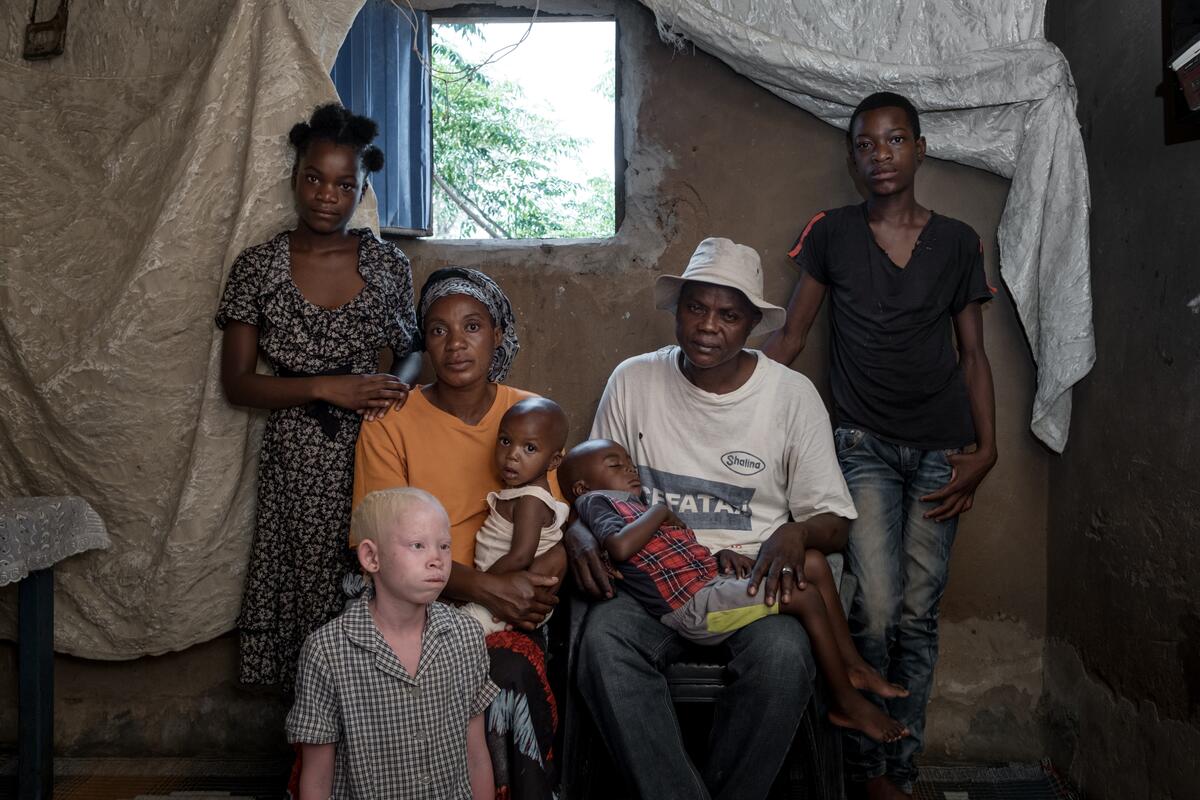UNHCR, WFP start feeding 6,300 needy exiles in Ecuador
UNHCR, WFP start feeding 6,300 needy exiles in Ecuador

IBARRA, Ecuador, September 9 (UNHCR) - The UN refugee agency and World Food Programme (WFP) have started distributing food rations to 6,300 refugees and asylum seekers in Ecuador in the largest such operation by the UN in the region since the Central American civil wars of the 1980s.
The food distribution is an expansion of an existing UNHCR-funded programme that provided rations for 600 refugees and asylum seekers in Ecuador. The refugee agency hopes that the increased rations will guarantee food security for vulnerable families in exile in four provinces in the north, two cities in the south, as well as Santo Domingo de los Colorados and the capital, Quito.
"UNHCR is proud to participate in this initiative, the largest joint achievement of two UN agencies in Ecuador," said José Euceda, the refugee agency's representative in the country.
The first distribution started in Ibarra last week, when 310 food packages were loaded onto trucks bound for the northern province of Carchi. Another convoy left for Esmeraldas the following day, while more trucks left from distribution centres in Quito and Lago Agrio.
Soraya, a Colombian 40-year-old mother of two girls, welcomed the food distribution to supplement her meagre income from odd jobs cleaning houses and washing clothes in Ibarra. "It has been two weeks since I last had work," she said. "It saddens me to think that my two girls may be hungry and I refuse to send them to work on the streets because it is too dangerous."
Her daughters - Daniela, 12, and Priscilla, 10 - stood in line next to their mother with about 30 other people waiting their turn. They arrived in 2001 and received refugee status. The girls say they barely remember their native Colombia.
Refugees and asylum seekers are informed about the food rations when they visit UNHCR's partner agencies for registration and status determination. Those interested are interviewed and assessed by social workers to ensure that the assistance goes to the neediest people, who receive "food tickets" for the distribution.
"We can't wait to go home and make some arepas for dinner," said a man in the queue, happy to see corn flour in the package, with which he can make pan-fried tortillas commonly eaten in Colombia.
In addition to corn flour, each food package contains rice, canned tuna fish, lentils, sugar and vegetable oil. The contents of the 1,600-kcal rations were based on the suggestions and needs of the refugees, sought through field studies and focus groups conducted by WFP and UNHCR.
The refugees also ensured their input in another way - by packing the rations. "Seven women and three men worked in Ibarra to assemble the sacks," said a project assistant about the hired help. "They worked hard and efficiently, and even finished before we anticipated, perhaps because they felt the aid was destined to help their own people who are in dire conditions."
The food distributions will continue regularly - weekly in places with high demand - for the duration of one year.
By Xavier Orellana in Ibarra, Ecuador








